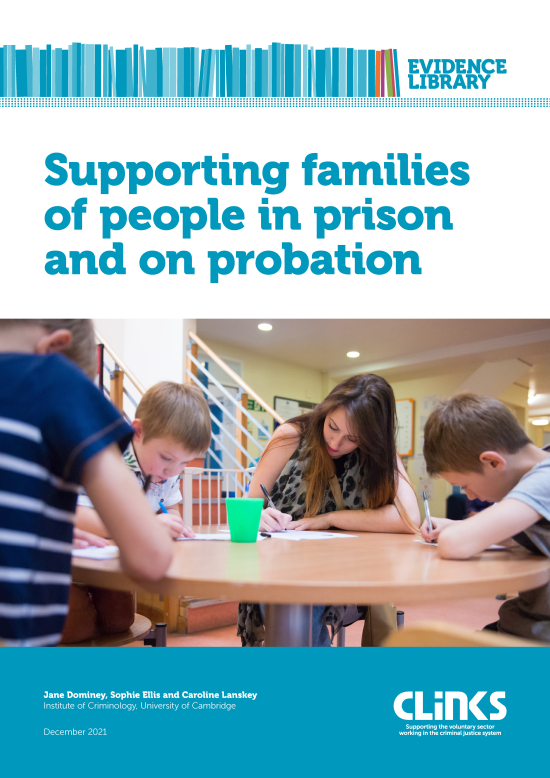
Supporting families of people in prison and on probation
Why read this evidence review?
In recent years there has been increased interest from policy makers, researchers and practitioners in the role that the family can play to help prisoners survive the pains of imprisonment and resettle successfully. There has been much less interest on the impact of criminal justice involvement on the families of people in prison and on probation. The team from the Institute of Criminology assemble the up-to-date evidence on this impact in a lucid analysis complete with critical success factors of approaches designed to mitigate these difficulties.
This review covers a wide range of issues including:
- How imprisonment is viewed through the eyes of family members
- Five key areas of impact
- Sustaining relationships
- Communication and information
- Economic disadvantage
- Health impacts
- Exclusion and stigma.
- The discussion of each impact area includes signposting to best practice guides and helpful resources.
An online evidence base for the voluntary sector working in the criminal justice system
This article forms part of a series from Clinks, created to develop a far-reaching and accessible evidence base covering the most common types of activity undertaken within the criminal justice system. There are two main aims of this online series:
- To increase the extent to which the voluntary sector bases its services on the available evidence base
- To encourage commissioners to award contracts to organisations delivering an evidence-based approach.
Each article has been written by a leading academic with particular expertise on the topic in question. The topics are selected by Clinks’ members as areas of priority interest. Clinks intends to build a comprehensive directory of the best evidence available across a wide range of criminal justice topics within the next three years (2020-2023). The online evidence base is co-ordinated by Russell Webster on behalf of Clinks.